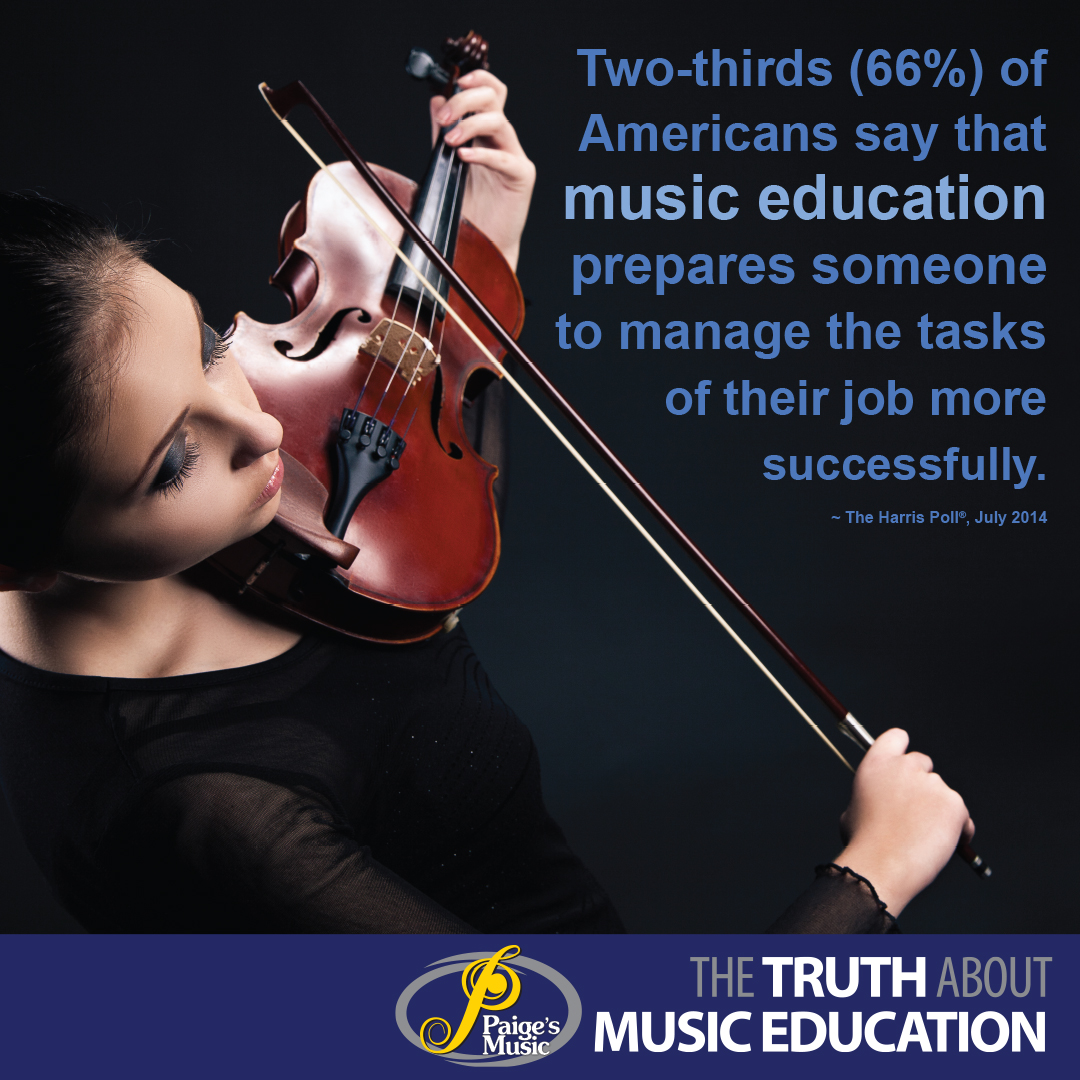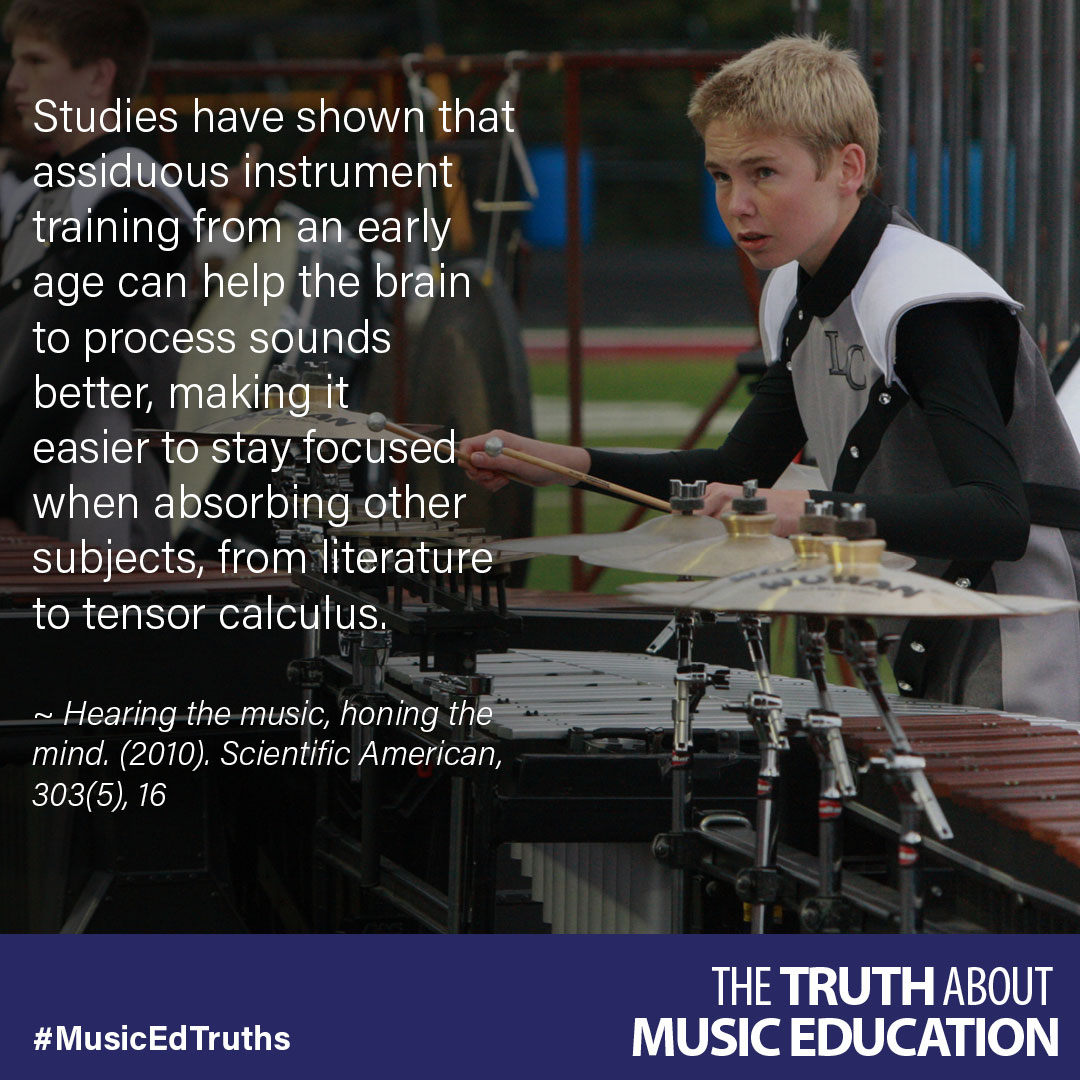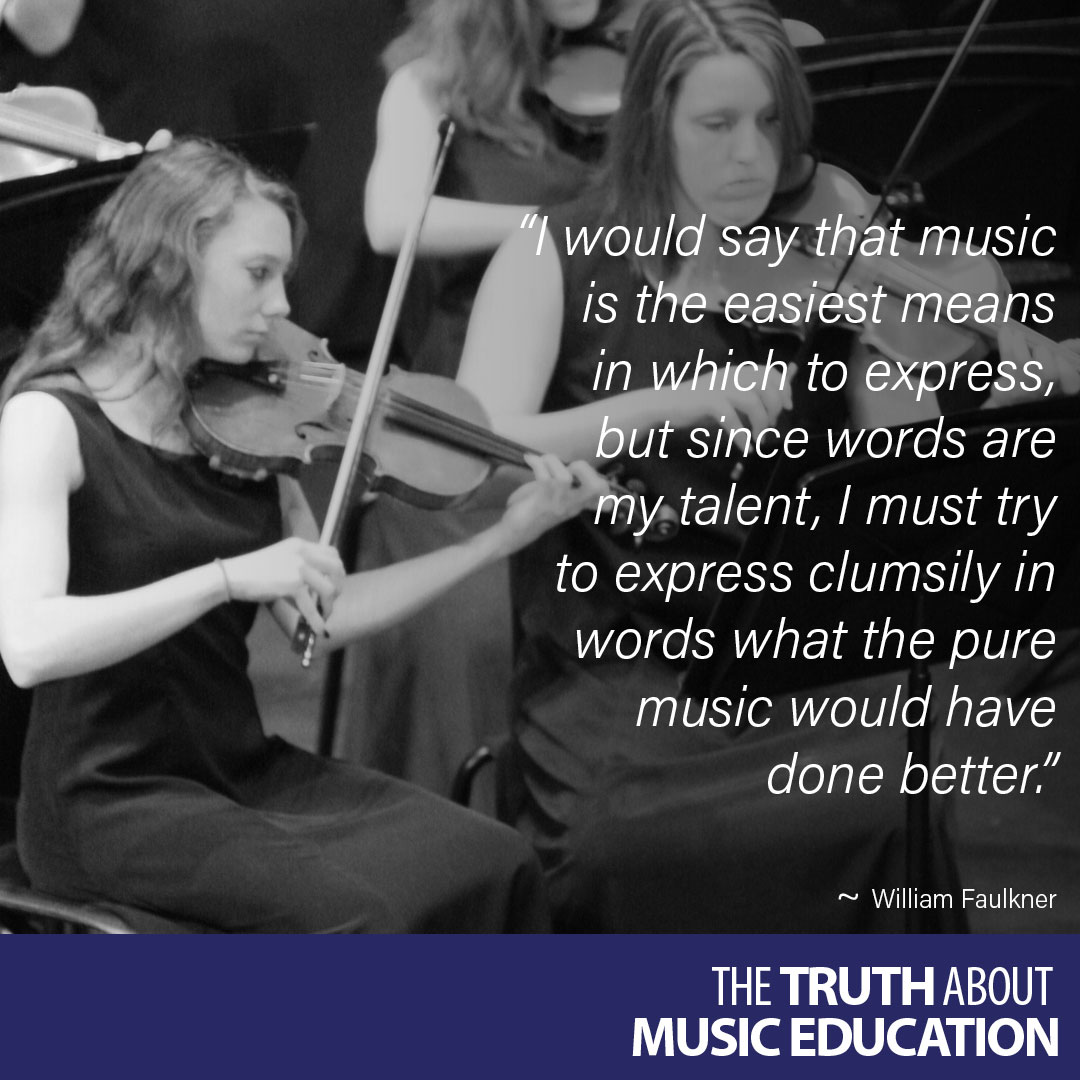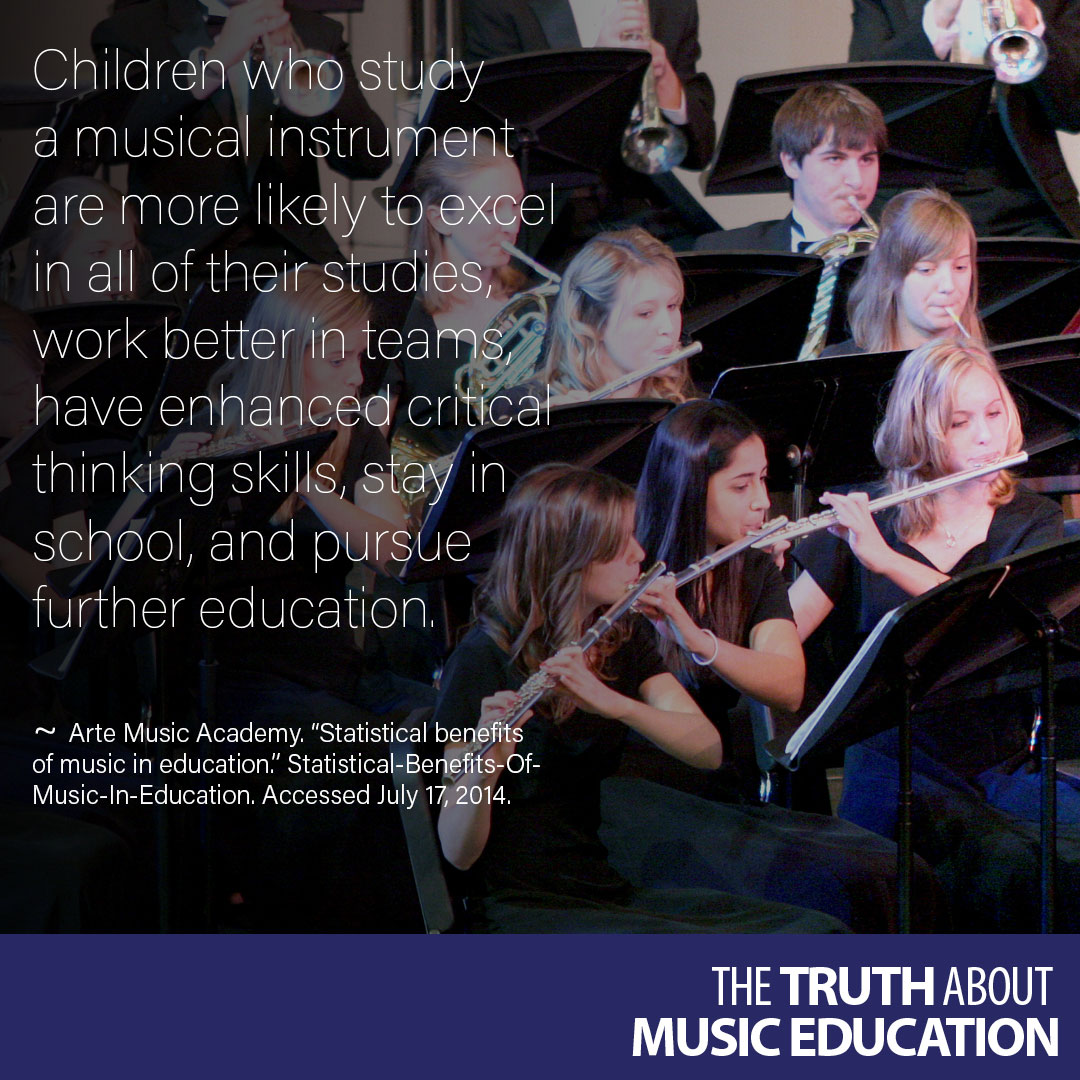Music Education Prepares Students

Two-thirds (66%) of Americans say that music education prepares someone to manage the tasks of their job more successfully.

Two-thirds (66%) of Americans say that music education prepares someone to manage the tasks of their job more successfully.
Daily care and maintenance of your instrument is very important to how well your instrument performs. Watch this quick video below for a few, quick tips on caring for your French Horn.

Studies have shown that assiduous instrument training from an early age can help the brain to process sounds better, making it easier to stay focused when absorbing other subjects, from literature to tensor calculus.

“I would say that music is the easiest means in which to express, but since words are my talent, I must try to express clumsily in words what the pure music would have done better.”
For the past few years we’ve held an event that not only saves you money on great instruments and supplies, but it’s also a lot of fun! We call it our Music Madness Sale and it happens in coordination with the college basketball tournament that begins about this same time.
From March 16th through the 18th you’ll be able to come in to the store for some great savings. You’ll receive a scratch-off game “ticket”. Scratch off your ticket to reveal your discount. Then, if you’d like, shoot a basketball to possibly double your savings! Each family gets a warm-up shot, and then you let the real thing fly. The savings range from 5% – 20% off of our already low prices. If you’re in the market for an instrument, now’s the time to come in to scratch, shoot and save!

Majorities of parents whose children are involved in music classes also credit music education for making them happier, more focused, more selfdisciplined, stronger academically and more helpful.

Children who study a musical instrument are more likely to excel in all of their studies, work better in teams, have enhanced critical thinking skills, stay in school, and pursue further education.

Two weeks ago, three of our technicians were invited out to Yamaha, in California for some specialized technical training. Tim Roethler, Spencer Guyer and Brad Rubin were attending. Which then brings up the issue of technician training in general.